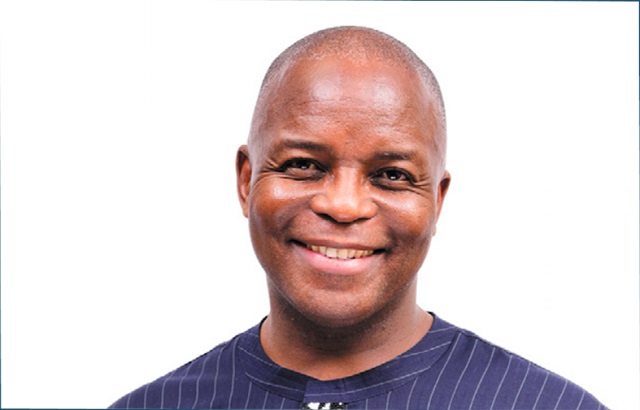
For 10 years, Brand Africa has been working to mobilise Africans and the diaspora to proactively drive a brandled African agenda. Its founder and chairman Thebe Ikalafeng tells us how Africa can build more successful brands
When you look at African brands today, would you say they are stronger than they were 10 years ago?
As was the case at the turn of the decade, there remains a stronger enthusiasm for building African brands. But the rhetoric doesn’t match the reality. There is not as much progress in the narrative about creating great brands. If you look at some of the stalwart brands, whether it is the MTNs, the Safaricoms, the Dangotes, those have consolidated their strengths and their brands remain a staple across the continent. But these are a minority: we need to see a lot more brands coming to the fore.
In this past decade, we’ve seen a greater presence of African talent globally, be it in fashion, music, the arts. Doesn’t that reflect a stronger ‘Brand Africa’?
Africa has never lacked talent and the world has never stopped looking to Africa for inspiration. What we haven’t seen emerge prominently are global African brands. There are many examples of African talent out there. The young South African designer, Thebe Magugu, the first South African to win the prestigious LVMH Prize for fashion design. The ready-to-wear African fashion retailer, KISUA, founded by Ghanaian Sam Mensah to challenge the likes of Zara and H&M. Alara, the highend Nigerian retailer founded by Nigerian businesswoman Reni Folawiyo. We have a lot of talent, we have a lot of enthusiasm, we have a lot of excitement and drive but unfortunately we don’t see enough resources, patience and patronage that will support their growth.
Are you saying we need to invest more in brand building or do we need to think about brands differently, in terms of what a brand stands for, in terms of what a brand represents and making that brand go global?
There’s two parts to it. Generally speaking, millennials are less forgiving of and loyal to brands than the older generations. They will move on to the next brand if that brand does not live up to its promise in terms of what it does functionally, but also in terms of how it fits into society or how they see themselves, what it does for the environment. In Africa we’re too forgiving and we have often returned to the very brands that have been less than benevolent or respectful to us – often because of a lack of alternatives.
Two decades ago, while I was marketing director for Nike for the continent, on my first trip to Cannes in France, for the biggest advertising gathering in the world, I was quite astounded to see that a lot of the brands from England were inspired by and leverage their English heritage. The French were selling France. But the brands from Africa were trying to be American, British or French. It was a woke moment for me. African brands cannot and should not compete with the French on how to be French.
They don’t have the authority or the authenticity. We need to take a distinctive African narrative to the world. It’s what at Brand Leadership we call “thinking locally and acting globally”. In other words, we should be inspired by our African identity and heritage but deliver to a global standard.
Where do you think Africa is going to be piercing through? Is it going to be in fashion, the arts, music, culture or is it going to be in tech, innovation, banking, logistics?
The greatest opportunity and low hanging fruit for African brands is in technology and the arts. If you look at a brand like EVC in Somalia, Wari in Senegal and leading the pack, M-Pesa, technology has enabled us to leapfrog many Western nations with bricks and mortar legacy issues. Mobile money is where Africa has probably shown its greatest leadership. They are being referenced. Thus, Rwanda and Kenya are fast-tracking their initiatives to build world class technology cities to leverage technology to drive development not just for Africa but the world.
When it comes to arts and culture, we’ve always been present with a global influence from South Africa’s Miriam Makeba collaborating with Harry Belafonte in the 60s, or the most successful broadway production, the Lion King, or Mantsho, the South African designers collaborating with H&M for their first global Africa-inspired range. Luxury fashion brands are continuously looking to Africa for inspiration.
The problem isn’t our talent, it’s the ownership of our creative output. We are often invited rather than owning the space and dictating our own terms. Thus Stella McCartney can charge $1,000 for an item we sell for $5 or Louis Vuitton can overtly reference a Lesotho blanket and we’ll be the first in line to pay the 3000% premium. We can reclaim our space because there’s already an appreciation of “African” aesthetic or rather, an appreciation of the design aesthetic that makes Africa different and admired. One thing that stands out from the survey:
Africa has got tech brands we consume daily, the Googles and the Facebooks, and yet they’re not as prominent as your traditional brands. Why is that?
People’s relationship with brands is quite instructive. Some brands become part of a person’s identity and affiliation and others a necessary evil, so to speak. Generally, media and financial “brands” aren’t viewed as a “badge of identity” but a necessary evil. They are viewed as essential commodities rather than “brands” that reflect their status or standing. That’s the difference.
Finally, right now, we are going through a crisis, a health crisis and an economic one. People say crises make reputations. How do you build brands through a crisis?
As our Africa’s Best Brands initiative shows, we have mostly relied on non-African brands for luxury but on African brands for essentials. During this crisis, where the non-African and other luxury brands have been put on pause, we’ve relied ever more on the essential brands, mostly African, for our day to day.
Out of this crisis those essential brands that have delivered with empathy, urgency and necessity will be rewarded. The time out of the global spotlight due to the pandemic has created an opportunity to deepen local brands’ engagement with African consumers in their time of need beyond just their functional needs and has laid a foundation and an opportunity once more for African brands to rise to the challenge.
****
 The Independent Uganda: You get the Truth we Pay the Price
The Independent Uganda: You get the Truth we Pay the Price


